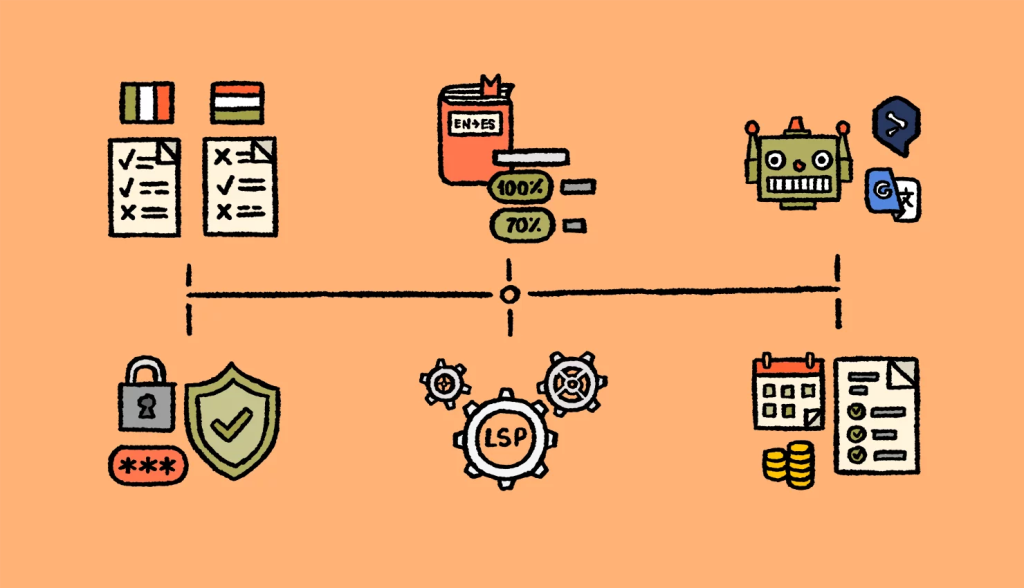
When companies expand across borders, their financial reports must speak more than one language both literally and culturally. That’s where financial report localization services come in. Global investors expect accuracy, clarity, and compliance with local standards. If your business wants to attract international funding or partnerships, localized financial reports aren’t just helpful—they’re essential.
In this blog, we’ll break down why localization matters in financial reporting, how it supports investor relations, and what to look for when choosing the best translation company for the job.
Why Financial Report Localization Matters
Let’s start with the basics. Financial reports are more than numbers—they tell the story of your business. From income statements to balance sheets and cash flow statements, they give stakeholders insight into performance and stability.
But global investors operate in different regulatory environments. Accounting standards, terminology, date formats, currency conventions, and even the way financial data is interpreted vary from country to country. A literal translation won’t cut it.
Financial report localization services adapt the content to the local market, ensuring that everything from terminology to tax notes aligns with expectations. It’s not just about translating language—it’s about making sure the report feels native to the investor, wherever they are.
Real-World Example: A US Tech Startup Expanding to Japan
A San Francisco-based SaaS startup planned to expand into Japan. They needed to localize their financial reports for potential investors and partners. Instead of just translating the reports, the best translation company they hired ensured that:
- Dates were formatted using the Japanese calendar style.
- Currency conversions were accurately presented and footnoted.
- Local accounting terms replaced U.S. GAAP-specific language.
- A bilingual glossary helped stakeholders compare terms easily.
This attention to detail gave Japanese investors confidence. As a result, the company secured a $4M investment round in less than 6 months.
What’s the Risk of Not Localizing Financial Reports?
Failing to localize financial data properly can lead to misunderstandings, regulatory issues, and missed opportunities.
Case Study: A European Pharma Firm’s Costly Mistake
A European pharmaceutical company submitted its financials to a U.S.-based private equity group. The firm used internal bilingual staff to translate the report but skipped localization. Unfortunately, this led to:
- Misinterpretation of revenue recognition policies
- Confusion around regional tax treatment
- Red flags in cash flow categorization
The investors backed out, citing lack of clarity. Months later, after hiring a professional localization team, the company had to reapproach investors—this time with better results.
Key Benefits of Financial Report Localization Services
Here’s how quality localization supports global investor confidence:
1. Regulatory Compliance
Different countries follow different accounting frameworks—like IFRS, U.S. GAAP, or local equivalents. Localization ensures your reports follow the right structure, terminology, and disclosure norms.
2. Clarity and Consistency
Investors want transparency. When reports are localized correctly, they eliminate confusion over technical terms, unit measurements, or fiscal periods.
3. Stronger Investor Communication
A well-localized report demonstrates professionalism. It shows that you’re serious about international growth and investor relations.
4. Faster Decision-Making
Investors can quickly evaluate opportunities when reports are easy to understand. This speeds up funding discussions and due diligence.
What Does Financial Report Localization Include?
A strong localization process involves more than converting language. It typically covers:
- Translation of financial terminology (not just word-for-word, but concept-for-concept)
- Currency formatting and conversion
- Date and numbering conventions (e.g., comma vs. period in decimals)
- Local accounting standards alignment
- Footnotes and glossary creation
- Audit of numerical accuracy post-localization
How to Choose the Best Translation Company
Not all translation providers are equipped to handle financial content. Here’s what to look for:
1. Specialized Financial Translators
The best translation companies hire linguists with backgrounds in finance, accounting, or economics. They understand the difference between EBIT and EBITDA and can spot errors before they become liabilities.
2. Compliance Knowledge
Check if the company understands international accounting standards like IFRS, U.S. GAAP, and country-specific rules. They should also be familiar with SEC, FSA, or other regulatory body formats if needed.
3. Data Security
Financial data is sensitive. Ensure the provider has strict confidentiality protocols, NDAs, and secure file handling processes.
4. Case Studies and References
Look for proof. The best partners will show you past projects or provide references from companies in similar industries.
Conversion Tip: Offer Multilingual Investor Reports on Your Website
Once you’ve localized your reports, don’t let them sit in a folder. Publish them on your website’s investor section. Use localized metadata and keywords to boost SEO in other markets.
For example, a renewable energy firm in Texas saw a 30% increase in website visits from German investors after publishing localized quarterly reports in German and English. Within 90 days, they secured two new international partnerships.
Localization in Action: A Middle Market Success Story
An Illinois-based manufacturing company wanted to attract Middle Eastern investors. They partnered with a firm offering expert financial report localization services. The process included:
- Arabic localization of annual and quarterly reports
- Culturally adapted financial summaries for investor roadshows
- Local currency valuation for specific product lines
- Inclusion of region-specific market performance data
After six months, they raised $10M in new funding and opened a regional office in the UAE.
Final Thoughts
Financial report localization isn’t a luxury—it’s a strategic move for businesses eyeing global expansion. Whether you’re courting investors in Europe, Asia, or the Middle East, your financial data needs to be crystal clear and culturally relevant.
By investing in expert financial report localization services, you ensure that language never gets in the way of business growth. And by choosing the best translation company, you safeguard accuracy, trust, and investor confidence.